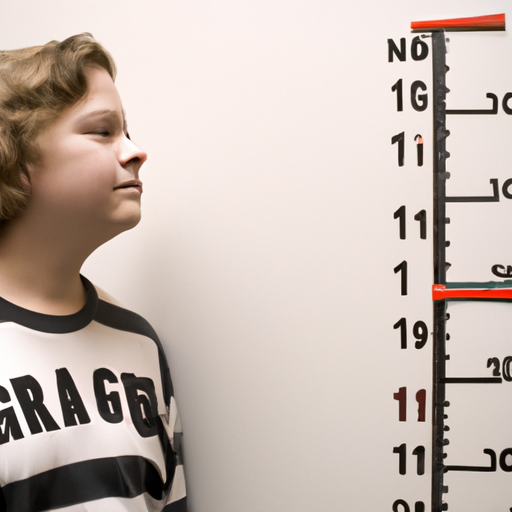Introduction
You’re here because you care deeply about someone who’s going through the confusing and exciting journey of growth and development. You want to support them, and maybe you’re even a little concerned. It’s not always easy to predict when an individual will stop growing, but let’s explore the key factors together.
Understanding Growth
The growth process is a complex interplay of genetics, nutrition, and hormones. It’s not as simple as reaching a certain age and suddenly stopping. Let’s look at some crucial elements:
- Genetics: One of the biggest factors in determining height. If the parents are tall, the child is likely to be tall. If the parents are short, the child is likely to be shorter.
- Nutrition: A balanced diet is crucial for proper growth. Deficiencies in certain nutrients can stunt growth.
- Hormones: The pituitary gland releases growth hormones that regulate growth.
The Stages of Growth
Throughout life, we go through several stages of growth. Let’s break them down:
- Infancy and Early Childhood: Rapid growth occurs during the first two years of life.
- Late Childhood: The growth rate slows down.
- Puberty: The growth rate picks up again. This is when most people achieve their final height.
Average Age of Growth Stoppage
Generally, girls stop growing around the age of 14 to 16, while boys stop growing between the ages of 16 and 18. However, these are just averages. It’s important to remember that everyone is different.
| Gender | Average Age When Growth Stops |
|---|---|
| Female | 14-16 years |
| Male | 16-18 years |
Factors Influencing Growth Stoppage
Several factors can influence when a person stops growing:
- Early or Late Puberty: Those who start puberty early are likely to stop growing earlier.
- Health Conditions: Certain conditions, like growth hormone deficiency or hypothyroidism, can affect growth.
Can Growth Be Stimulated?
There’s no surefire way to stimulate growth, but there are things you can do to support it:
- Nutrition: Ensure a balanced diet with plenty of protein, calcium, and vitamins.
- Exercise: Regular physical activity can help stimulate growth hormones.
- Sleep: During sleep, the body releases growth hormones.
When to Seek Medical Advice
If you’re concerned about the person you’re caring for not growing as expected, it’s important to seek medical advice. Signs that you should consult a doctor include:
- They’re significantly shorter than their peers.
- Their growth has suddenly stopped or slowed.
- They’ve not started puberty by the age of 14 (for girls) or 16 (for boys).
Frequently Asked Questions
1. Can a person grow after the age of 20?
Most people stop growing in their late teens, but there are exceptions. In rare cases, someone may continue to grow into their early twenties.
2. Does exercise affect growth?
Yes, regular exercise, particularly activities that involve stretching and resistance, can help stimulate growth hormones.
3. What role does sleep play in growth?
During deep sleep, the body releases growth hormones. A lack of sleep can potentially stunt growth.
4. Can malnutrition affect growth?
Yes, a lack of essential nutrients can hinder growth and development.
Conclusion
Understanding growth is a complex process, but with the right knowledge, you can support your loved one through this journey. Remember, everyone grows at their own pace. Be patient, provide a balanced diet, encourage regular exercise, and ensure they’re getting enough sleep. If you have concerns, don’t hesitate to seek medical advice.



